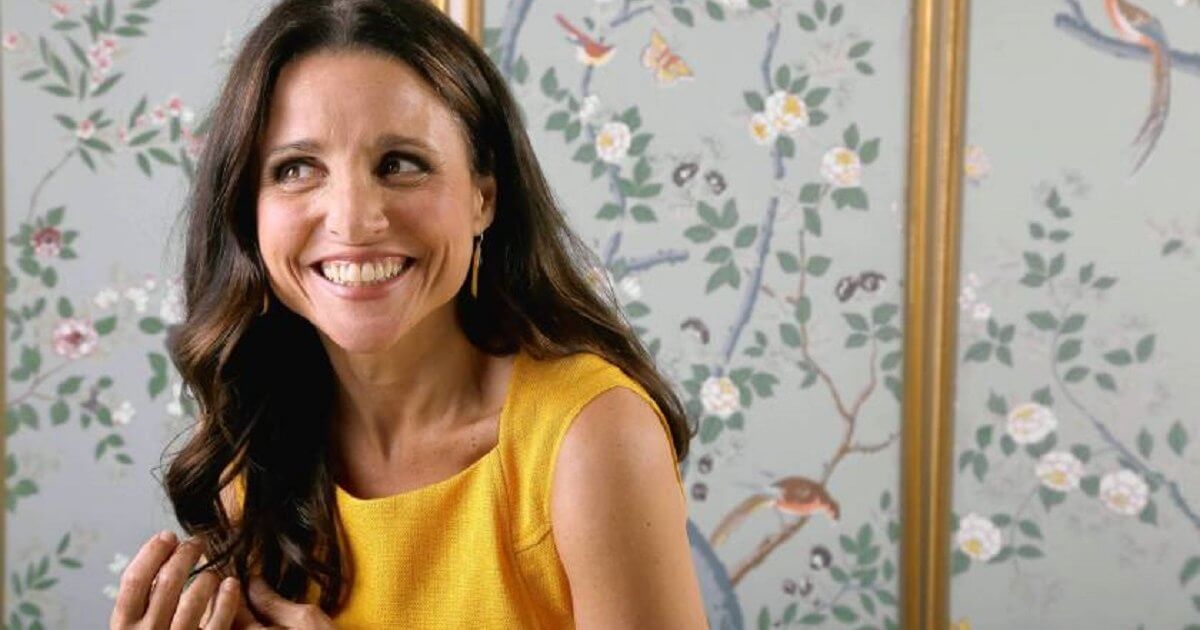Julia Louis-Dreyfus' Amazing Year
- The actress and survivor starred in a critically-acclaimed comedy with Will Ferrell, signed a lucrative deal with Apple TV+, and speculated that a Veep return might be in the future.
- In 2017 Louis-Dreyfus was diagnosed with stage two breast, which means that her cancer had spread in a limited way.
- Nearly 300,000 women are diagnosed with breast cancer annually. Due to enormous advances in treatment 90% of women now survive the disease, but much more work is needed.
- Most women should start being screened for breast cancer at 45. Those at higher risk due to family history or certain genetics should be tested sooner.
Louis-Dreyfus has continued to succeed and thrive even after her battle with breast cancer. The star announced that she had been diagnosed the day after winning a Primetime Emmy Award for Veep, saying, “One in eight women get breast cancer. Today, I’m the one.”
Just when you thought… pic.twitter.com/SbtYChwiEj
Julia Louis-Dreyfus (@OfficialJLD) September 28, 2017
She announced that she was cancer-free in October 2018.
What to Know About Breast Cancer
Breast cancer is the second most common form of cancer for American women (after some skin cancers). Over 275,000 women are diagnosed every year, with the average woman having a 1 in 8 chance of developing the disease over her lifetime.
Fortunately, because this cancer is so common, there’s an enormous amount of research and treatments that have been developed to help you fight the disease. Chemotherapy, immunotherapy, radiation, and surgery are all viable options your doctor may recommend to treat your cancer.
“The good news is, there are so many different treatments and options available,” Dr. Elizabeth Comen, a medical oncologist at Memorial Sloan Kettering Cancer Center, previously told SurvivorNet. “And doctors really are attuned to trying to understand patients better, to figure out– what are their individual needs? Not just the biology of their cancer, not just the anatomy of their cancer, but how might our treatment options fit into their lifestyle?”
An Introduction to Breast Cancer Symptoms & Diagnosis
Screening for Breast Cancer
Breast cancer is typically detected via a mammogram, which takes an x-ray picture of the breast to reveal any cancerous growths.
Doctors are in consensus that women between the ages of 45 and 54 should get annual mammograms, but there is some contention over whether women aged 40-45 should also be screened.
You should talk to your doctor about being screened before age 45 if you fall into any high-risk category, such as a history of breast cancer in your immediate family, childhood exposure to radiation in the breast area, or certain genetic mutations.
When Should I Get a Mammogram?
10% of all breast cancer cases are hereditary, so knowing your family history is crucial to developing a plan for early detection. To find out whether your genes put you at an increased risk of breast cancer, experts recommend women go through genetic testing to detect mutations like BRCA1 or BRCA1.
Understanding your unique genes could help you and your doctor understand your risk for breast cancer and help inform the best screening and treatment plan for you.
Should I Get Genetic Testing to Assess My Risk for Breast Cancer?
Learn more about SurvivorNet's rigorous medical review process.

